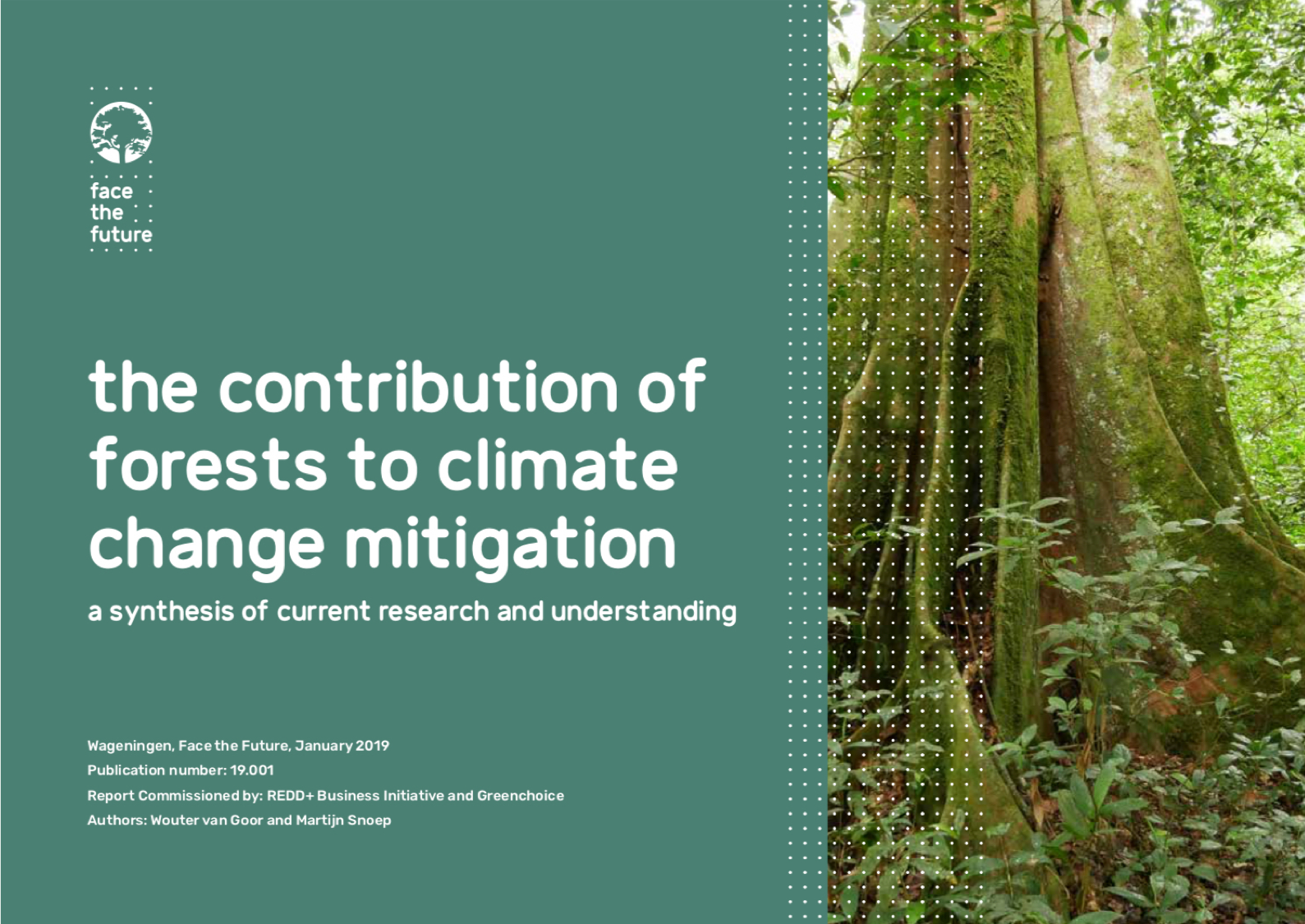A report that synthesises the existing research on the contribution and cost-effectiveness of forests in tackling climate change was recently commissioned by the energy company Greenchoice and the REDD+ Business Initiative, of which Ecosphere+ is a member. It collates information on the role of REDD+ projects – projects that work to Reduce Emissions from Deforestation and forest Degradation.
Below are the key findings of this synthesis report which drive home the fact that global climate goals cannot be met without forests. Reducing deforestation and degradation and increasing forest cover and restoration are shown to have huge potential for cost-effectively reducing carbon emissions whist also acting as a carbon sink by removing carbon dioxide from the atmosphere at a pace and scale required to reach global climate goals of 1.5 degrees C.
The role of forests in global climate change
The report synthesises recent studies on the role that forests play in global climate change. The loss and degradation of forests contribute to climate change both from direct emissions and also through reducing the capacity of global forests to mitigate climate change. The report finds that the net emissions from tropical deforestation is about 8% of total global carbon emissions when taking into account the carbon sequestration of forests. What this means is that gross emissions from the loss of forests outpaces the rate at which forests remove carbon from the atmosphere. The emissions from forestry and other land use alone is responsible for approximately 30% of the global total emissions.
As a result, the mitigation potential of forests is found to be as high as 24-30% of the total global greenhouse gas emissions – this includes afforestation and reforestation in addition to preventing the loss of forests.
Cost-effectiveness of REDD+
Avoiding deforestation and forest degradation is shown to offer a large, fast, and cost-effective means of reducing emissions. The latest IPCC report indicates that delays in bending the emissions curve now means that in the future we will increasingly rely on negative emissions technologies.
Synthesised studies estimate that up to 80% of the mitigation potential from avoided deforestation and forest degradation can be achieved between US$10-100 per tCO2e, withup to 50% at or below US$10/tCO2e.
Carbon capture and storage is shown to cost between US$100-200/tCO2e and is most commonly included in climate modelling, along with afforestation.
It is clear that protecting forests is by far the more cost-effective negative emissions solution.
REDD+ in the voluntary carbon market
A key way to finance forest conservation is through the sale of REDD+ or forest carbon credits. The report shows that over the past decade carbon credits from forest projects have been the most commonly transacted voluntary offset. In addition, forest carbon credits are regularly valued at a higher price than other carbon projects types due to the appeal and substantial co-benefits of these projects. However, in recent years, due to large supply and low demand, market prices have often been at the bottom of or below the cost for implementation of these projects.
REDD+ credits are not accepted in compliance markets.
The co-benefits of REDD+
Forests have a significant and broad range of social and environmental benefits, therefore REDD+ projects have a positive impact on biodiversity, livelihoods and the preservation and recovery of a broad range of ecosystem services provided by forests. These benefits are highly interlinked, have an impact well beyond the boundaries of the forest itself and contribute to achieving the UN Sustainable Development Goals. By attracting revenues from carbon, REDD+ contributes to the conservation and enhancement of forest ecosystem services for which no market or other funding of this scale yet exists.
In summary, the report highlights how global research shows that REDD+ offers a large, fast, and cost-effective means of reducing emissions while at the same time creating substantial net positive social and environmental benefits.
The REDD+ Business Initiative is a coalition of companies developing effective, business-led solutions through supporting REDD+ projects in order to address business impacts. Ecosphere+ is a member of the initiative and our CEO, Lisa Walker, is on the board. For more information about the initiative and its work to support and advocate for nature-based climate solutions, read more here or contact us.
Greenchoice is an energy company based in the Netherlands that uses REDD+ credits to offer carbon neutral gas to customers.
The report was prepared by Face the Future, a REDD+ project developer and consultancy based in the Netherlands.

